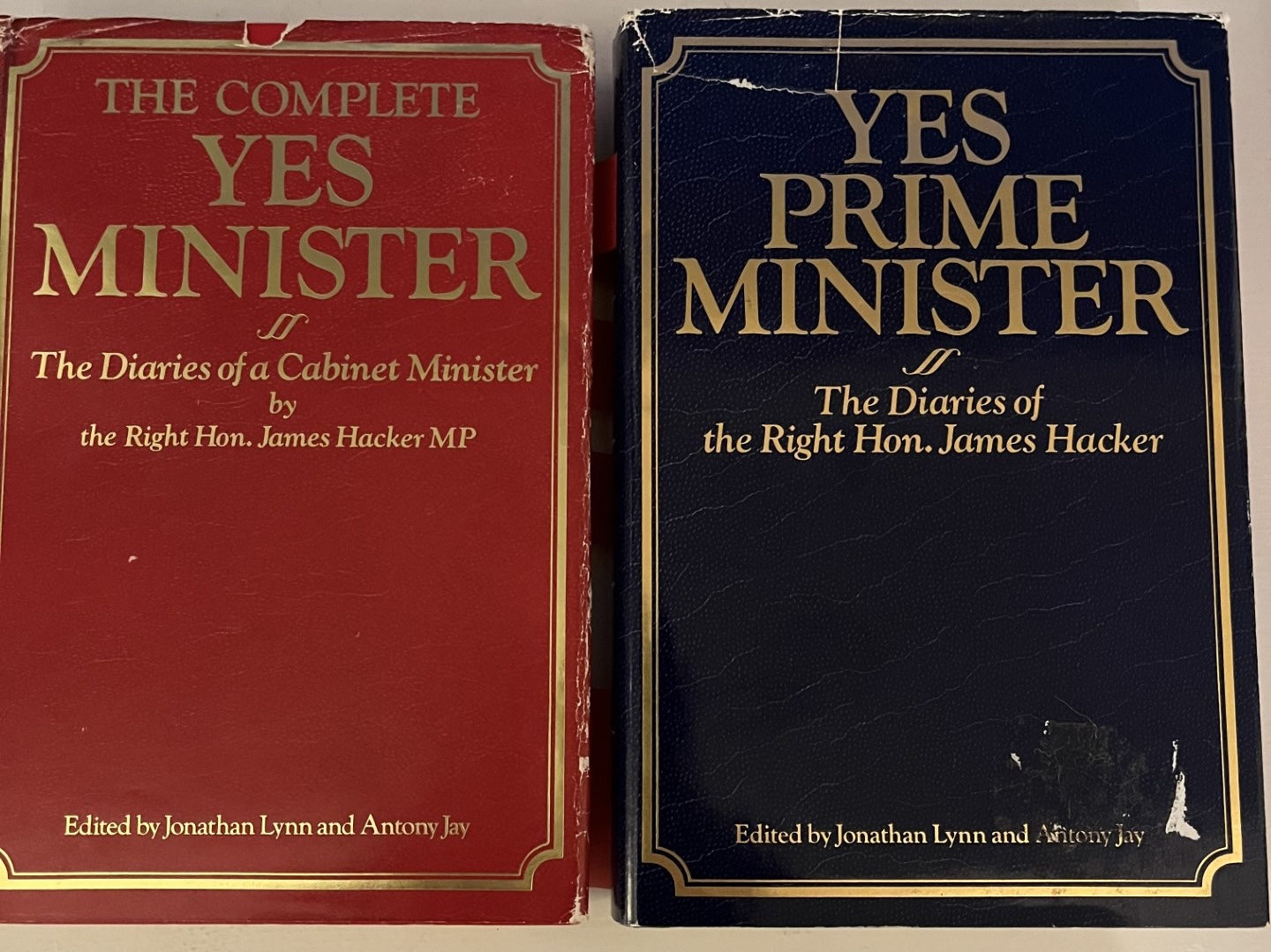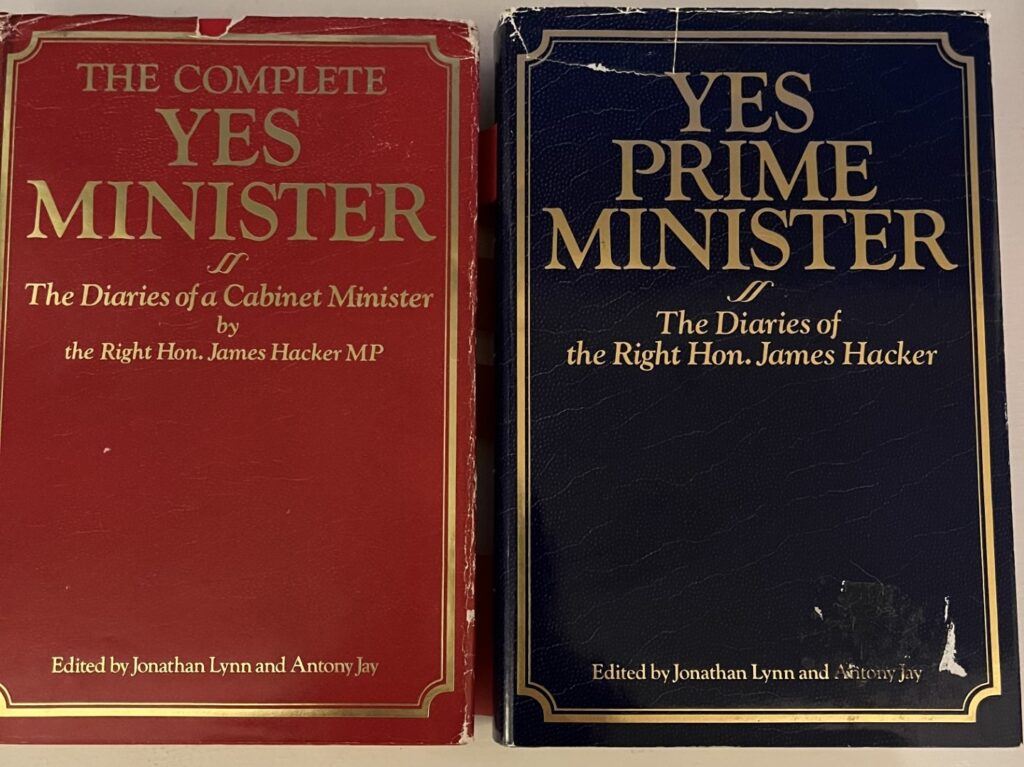A Sample of Universal Bureaucratic Excuses
By
Branko Terzic
The British TV show “Yes, Minister” was broadcast in the U.S. on public television in the early 1980’s after it had been a hit in England. At that time I was a young Commissioner on the State of Wisconsin Public Service Commission where, like the British cabinet, “Ministers/Commissioners” were appointed to serve with the civil service. The tension was between commissioners who would come and go and a permanent, but necessary, bureaucracy. That was the premise of the show and what I was experiencing. I would often come home and after watching an episode of “Yes, Minister” turn to my wife Judy and say with dismay “I just lived that episode today!”

Too few of those now engaged in politics are familiar with the 1980’s British TV comedy “Yes, Minister.” That’s unfortunate as the program, ostensibly a comedy, but described to me by Lord Leon Brittan as a “documentary”, contained insightful observations of politics and politicians at work.
A book based on the series was published in the UK in 1981 and in the USA in 1987. “The Complete Yes, Minister: The Diaries of s Cabinet Minister by the Right Hon. James Hacker MP” was “edited” by Jonathan Lynn and Anthony Jay (creators of the TV series,) (Salem House Publishers, Topsfield MA 1987).
Among the gems in this humorous survey of British political institutions including the Civil Service, with foibles applicable to bureaucracies around the globe, global are these explanations of the “Civil Service’s five standard excuses” for why things went wrong. The original Yes, Minister explanation, in italics, is followed with some US examples.
1. The Anthony Blunt excuse
There is a perfectly satisfactory explanation for everything but, security prevents its disclosure.
Anthony F. Blunt was a leading British art historian, who after being offered immunity from prosecution, confessed to having been a Soviet spy. For Americans this covers everything from Kennedy’s assassination to the truth about Russian interference in US elections in 2016.
2. The Comprehensive schools excuse
It’s only gone wrong because of heavy cuts in staff and budget which stretched supervisory resources beyond limit.
In the US it would be the explanations for the ability of Jeffrey Epstein to commit suicide in what was supposed to be close supervision in a heavily guarded federal prison.
3. The Concorde excuse
It was a worthwhile experiment now abandoned, but not before it provided valuable data and considerable employment.
The Concorde was a British-French super-sonic passenger airliner which flew from 1976 to 2003. It experienced high construction costs, high maintenance, really high fuel costs and could only operate at supersonic speeds over the ocean. Ticket prices were 30 times alternative flights.
In the US this mistake could be like the Carter era Great Plains Synfuels plant for converting coal to gas at a construction cost (to taxpayers) of $2.1 billion and later being sold in 1988 to a local electric cooperative for $85 million.
5. The Munich Agreement excuse
It occurred before important facts were known and cannot happen again. (The important facts were that Hitler wanted to conquer Europe. This was actually known: but not to the Foreign Office, of course.)
Perhaps for the US reader, the claim that Iraq’s president Saddam Hussein had “weapons of mass destruction” meets this definition of decisions made without facts.
6. The Charge of the Light Brigade excuse
It was an unfortunate lapse by an individual which has now been dealt with under internal disciplinary procedures.
In the US in recent times a November 2010 release of a combined 718,030 classified or unclassified but sensitive US military and diplomatic cables were said to originate from a single source, U.S. Army intelligence analyst Pfc. Bradley Manning who was arrested in May 2010 and convicted of violating the Espionage act in July 2013. Those who failed to secure the data…
Humor is a much needed counterpoint to the pomposity, intolerance and self-righteousness of much of what passes for politics today. That’s because humor requires two elements: truth and surprise. If something does not ring “true’ to the observer, then the “surprise” which follows just will not work. That is why all humor is not universal. Something funny is one country may not be so in another because the “truth” or situation or personality identified is not recognized in the other country. Politics and political machinations are, however, pretty universal. There are buffoons in politics in every country and it doesn’t hurt to point it out with humor.
The Honorable Branko Terzic is a former Commissioner on the U.S. Federal Energy Regulatory Commission and State of Wisconsin Public Service Commission, in addition to energy industry experience was a US Army Reserve Foreign Area Officer ( FAO) for Eastern Europe (1979-1990). He hold a BS Engineering and honorary Doctor of Sciences in Engineering (h.c.) both from the University of Wisconsin- Milwaukee.
#BrankoTerzic #energy #regulations #experience #research #future #opportunity #strategy #management #people #electricity #power #utilities #renewables #RenewableEnergy #energysector #oilandgas #powergeneration #energyindustry #oilandgasindustry #sustainability #oil

